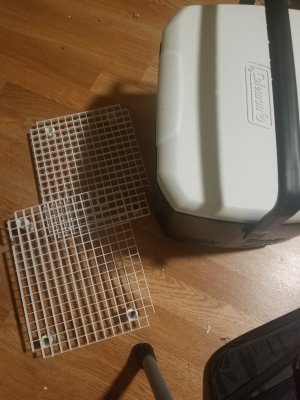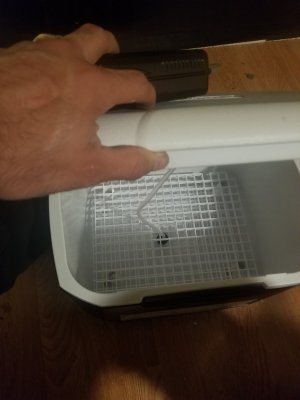I'm about to drive 900miles away and need to move my 45gl.
In doing reading, I see the common thing is buckets of tank water, portable air stones and livestock in an igloo type container.
Would putting liverock with as many corals into plastic containers (with holes) help fight any possible ammonia spikes?
I am curious to see if theres benefit to using seeded LR during transport.
I forecast the trip to be 2-3 days.
Tyvm
In doing reading, I see the common thing is buckets of tank water, portable air stones and livestock in an igloo type container.
Would putting liverock with as many corals into plastic containers (with holes) help fight any possible ammonia spikes?
I am curious to see if theres benefit to using seeded LR during transport.
I forecast the trip to be 2-3 days.
Tyvm


















